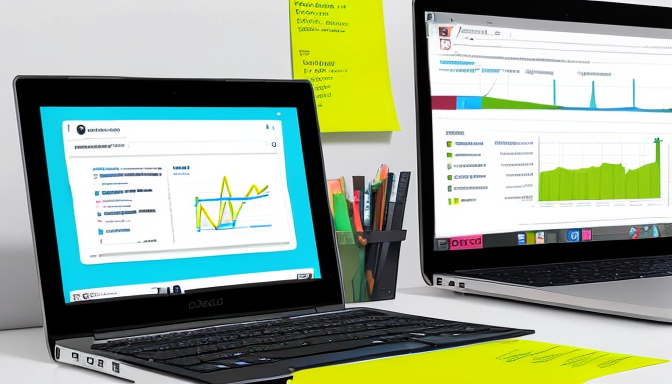In today’s digital landscape, securing your Joomla website is more crucial than ever. With cyber threats lurking around every corner, it’s like walking through a minefield without a map. But fear not! This article provides a comprehensive guide to securing your Joomla website in 2023, covering essential tips and best practices to protect your site from potential threats. Think of it as your personal security blueprint, ensuring that your online presence remains safe and sound.
First things first, let’s dive into some key security practices that every Joomla user should implement. Regular updates are your first line of defense; they patch vulnerabilities that hackers might exploit. Imagine trying to keep your house safe with a broken lock—updates are that lock! Additionally, adopting a strong password policy is vital. Use a mix of letters, numbers, and symbols, and change your passwords regularly to keep intruders at bay. It’s like changing the code to a secret vault; the more complex, the better!
Moreover, the importance of using trusted extensions cannot be overstated. Just like you wouldn’t invite a stranger into your home, only install extensions from reputable sources. This practice significantly enhances your site security and minimizes risks. Remember, a secure Joomla site is a happy Joomla site!
Now that you’ve fortified your site, let’s talk about ongoing monitoring and maintenance. Regular backups are a lifesaver; they ensure that you can restore your site quickly in case of a breach. Think of backups as your safety net—always there when you need them! Conducting security audits is another essential practice. These audits help you identify vulnerabilities before they become problems, keeping your site one step ahead of potential threats.
Finally, using monitoring tools can be a game-changer. They act like a security alarm, alerting you to suspicious activity in real-time. By staying vigilant and proactive, you can keep your Joomla site secure and enjoy peace of mind in the ever-evolving digital world.
Essential Security Practices
Securing your Joomla website is not just a one-time task; it’s an ongoing commitment. Think of it like maintaining a car; regular check-ups are essential to keep it running smoothly. First and foremost, keeping your Joomla installation updated is crucial. Each update often includes security patches that protect you from known vulnerabilities. So, don’t just hit the snooze button when an update notification pops up—act on it!
Next up is the importance of strong password policies. A weak password is like leaving your front door wide open. Use a mix of uppercase letters, lowercase letters, numbers, and special characters. It’s also a good idea to change your passwords regularly and avoid using the same password across different platforms.
Another vital aspect is the use of trusted extensions. While Joomla offers a plethora of extensions to enhance your site, not all are created equal. Always download extensions from reputable sources and check their reviews. If an extension seems sketchy, it’s best to steer clear. Remember, one vulnerable extension can compromise your entire site!
Lastly, don’t overlook the importance of regular backups. Imagine losing all your hard work due to a security breach or a technical glitch. Regular backups are your safety net, allowing you to restore your site quickly in case of an emergency. Consider using automated backup solutions to simplify this process.

Monitoring and Maintenance
When it comes to securing your Joomla site, monitoring and maintenance are your best friends. Think of your website as a garden; without regular care, it can quickly become overrun with weeds. So, what can you do to keep your digital garden thriving? First off, regular backups are essential. Imagine losing your hard work due to a security breach or server failure. By scheduling automatic backups, you can ensure that your data is safe and sound, ready to be restored at a moment’s notice.
Next, let’s talk about security audits. Conducting these audits is like having a health check-up for your website. Regularly review your site’s security settings, user permissions, and installed extensions. Are they all up to date? Are there any vulnerabilities lurking in outdated plugins? If you find any, don’t hesitate to update or remove them. Remember, keeping your Joomla core and extensions updated is crucial in defending against potential threats.
Additionally, utilizing monitoring tools can help you detect vulnerabilities before they become serious issues. Tools like Joomla Security Scanner can provide real-time alerts about suspicious activities. Just like having a security system in your home, these tools offer peace of mind knowing you are proactively protecting your site.
In summary, the key to maintaining a secure Joomla site lies in:
- Regular backups
- Frequent security audits
- Using monitoring tools
By following these practices, you can significantly reduce your website’s risk and ensure a safe online presence for you and your visitors.
Frequently Asked Questions
- What are the key security practices for Joomla?
To keep your Joomla site secure, focus on regular updates, strong password policies, and using trusted extensions. Think of these practices as your site’s armor, protecting it from potential threats!
- How often should I back up my Joomla site?
Regular backups are essential—aim for at least once a week. Imagine your site as a garden; if a storm hits, you want to have a backup plan to restore it to its former glory!
- What tools can I use to monitor my Joomla site?
There are several great tools available, like Akeeba Backup for backups and Admin Tools for security audits. Think of them as your site’s security guards, always on the lookout for vulnerabilities!
- Why is using trusted extensions important?
Using trusted extensions is crucial because they are less likely to contain vulnerabilities. It’s like choosing a reliable car—better to go with a brand you trust than risk a breakdown!